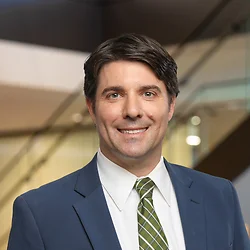U.S. Supreme Court Upholds Constitutionality of TCPA, But Strikes Down Government Debt Collection Exception
On July 6, 2020, the United States Supreme Court upheld the constitutionality of the Telephone Consumer Protection Act, 47 U.S.C. §§ 227 et seq. ("TCPA") in general, but struck down one of its provisions that created a carve-out for collection of government-backed debt.
The TCPA was enacted in 1991 to provide redress for consumers who were bombarded with unwanted telemarketing calls. In general, the TCPA prohibits persons or entities from making calls using either automatic dialing equipment or prerecorded or artificial voices. In 2015, Congress amended the TCPA to create an exception for calls that relate to the collection of debts owed to or guaranteed by the U.S. government. 47 U.S.C. § 227(b)(1)(A)(iii). This amendment essentially allowed robocalling in connection with student loan and mortgage debt owned or backed by the federal government. However, the amendment did not allow similar exceptions for calls seeking to collect debts owned or guaranteed by private institutions or calls related to other subjects. That distinction was the basis for the legal challenge to the amendment, as the plaintiffs argued the government debt collection exception rendered the entire TCPA unconstitutionally content-based in violation of the First Amendment.
In William P. Barr et al. v. American Association of Political Consultants et al., Case No. 19-631 (2020), the Supreme Court held that the government debt exception was an unconstitutional violation of the First Amendment because it was a content-based speech restriction that could not withstand strict scrutiny. As a result, the Court struck down the government debt exception, but refused to agree with the plaintiffs' argument that all provisions of the TCPA regarding robocalling should be stricken, instead holding that only the government debt exception provision should be severed from the TCPA.
While the Court's decision will not necessarily change how many businesses conduct telemarketing or collect debts, for those businesses that do collect government-owned or government-guaranteed debts – such as mortgage lenders or servicers that collect on federally backed mortgage loans or collection agencies that may be hired to collect defaulted student loan debt – the Court's decision may have a big impact on the methods by which those businesses conduct debt collection. To the extent those businesses use automatic dialing equipment, artificial or prerecorded voices, or any other mechanism that could be considered "robocalling" in connection with debt collection, they will have to adjust their policies, procedures, and mechanisms to ensure compliance with the TCPA's restrictions on such activity, or else face the possibility of liability on a class-wide basis.
Andrew LeMar is a partner in the firm's Litigation Group and Class Action Defense Group, with significant experience defending companies against consumer class actions and individual actions, including those brought under the TCPA. Andrew may be contacted at alemar@burkelaw.com or (312) 840-7108.
Related Professional
- Partner
Related Practices & Industries
Sign-Up
Subscribe to receive firm announcements, news, alerts and event invitations.


